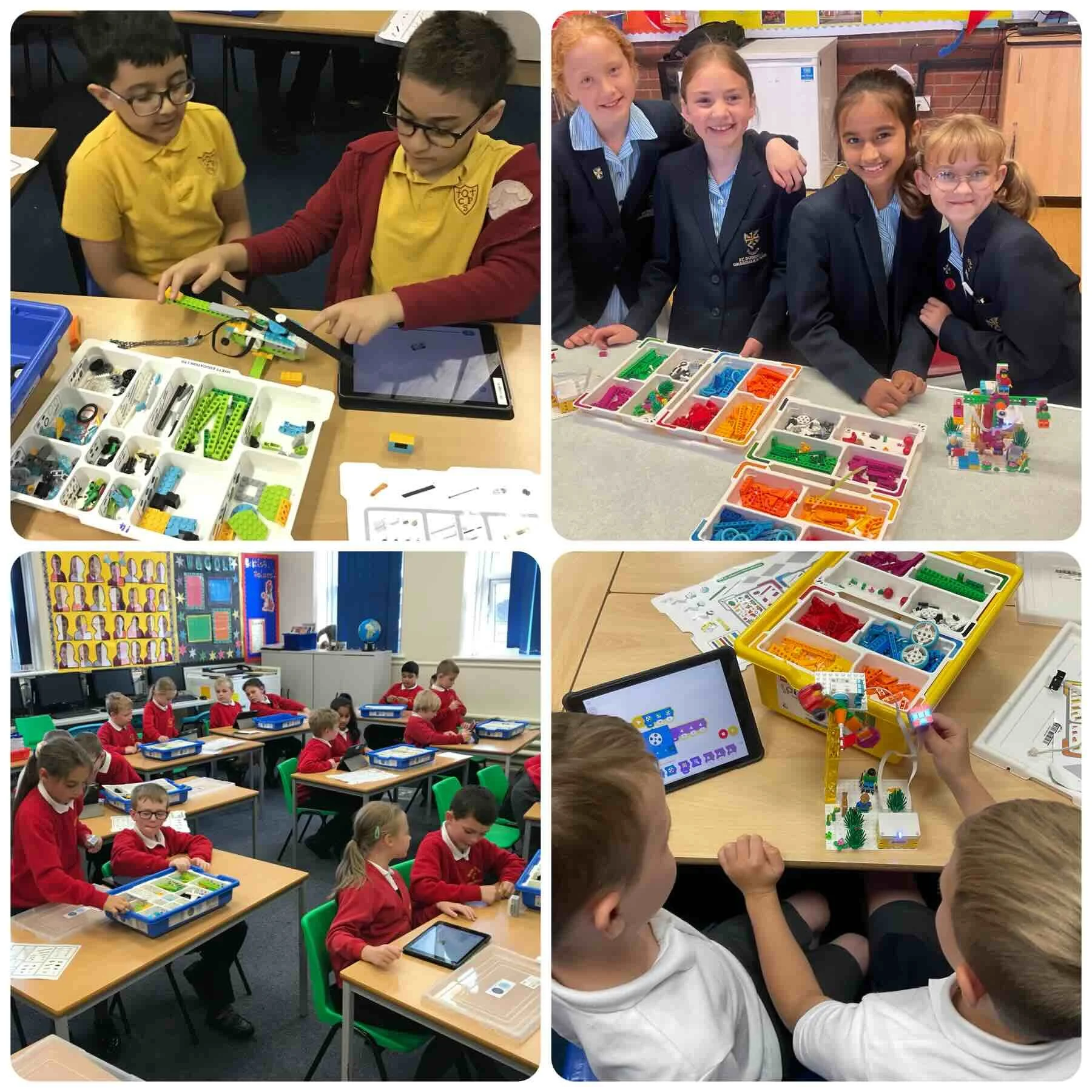Beginner STEMbotics - Robotics & Coding Workshop (Y1-Y6)
Year 1 and 2 students create and explore early engineering and coding in Beginner STEMbotics.
Beginner STEMbotics Workshop Description:
Beginner STEMbotics is a wonderful and exciting introduction to robotics and early coding. During this robotics workshop students can build, from instructions, a range of different designs, or get creative and design and build their own robots. Once built, we will then guide the students through programming their creations; which can be made to move and modify their behaviour using distance, tilt or colour sensors.
Programming can be carried out using icon coding (similar to Scratch Jr.) or block coding (similar to Scratch).
All of our robot workshops are run by experienced instructors, and we can tailor sessions to include all children, including those with SEN, so that the children can access all activities and participate in STEM learning. When you make any additional needs of your group known, our team can explain how we can encourage, support, and motivate each and every child to provide them with an incredible robotics and coding experience.
Workshop Aims:
To bring STEM concepts into real-life situations
To promote the use of robotics and coding
To develop critical thinking, creativity and teamwork skills
To encourage the participation of students in Science, Technology, Engineering and Maths
Beginner STEMbotics Workshop Formats
In KS1 Beginner STEMbotics we can work with up to 32 students in pairs.
In KS2 Beginner STEMbotics we can work with up to 40 students in pairs, and up to 60 students in threes.
Working in pairs provides the students with the best experience.
Taster Experience:
4 x 1 hr sessions/day
Up to 128 KS1 or KS2 children working in pairs per day
Up to 160 KS2 children working in pairs per day
Up to 240 KS2 children working in threes per day
Standard Experience:
3 x 90 min sessions/day
Up to 96 KS1 children working in pairs per day
Up to 120 KS2 children working in pairs per day
Up to 180 KS2 children working in threes per day
In-Depth Experience:
2 x 2hr sessions/day
Not recommended for KS1 but suitable for KS2
Up to 80 KS2 students working in pairs per day
Up to 120 KS2 students working in threes per day
Cost:
Our robotics workshop prices vary depending on your organisation’s location, and the location of our nearest instructor. Please use our Enquiry Form to get accurate pricing for this workshop based on your location.
“Just wanted to express our appreciation for the Beginner STEMbotics robotics workshop that took place today.
The children had an absolute blast coding with LEGO, and it was truly heartening to witness the enthusiasm and creativity that the activity ignited in them.
The hands-on approach to learning about algorithms and programming not only made the concepts tangible but also allowed the students to see the practical applications of coding in a fun and engaging manner.”
Students in Year 3 and 4 explore the use of sensors and integrate them into their own robotics designs.
An exciting introduction to creating, building and programming robots!
Curriculum Objectives:
Computing
(Key Stage 1) understand what algorithms are; how they are implemented as programs on digital devices; and that programs execute by following precise and unambiguous instructions
(Key Stage 1) create and debug simple programs
(Key Stage 1) use logical reasoning to predict the behaviour of simple programs
(Key Stage 2) design, write and debug programs that accomplish specific goals, including controlling or simulating physical systems; solve problems by decomposing them into smaller parts
(Key Stage 2) use sequence … in programs
(Key Stage 2) use logical reasoning to explain how some simple algorithms work and to detect and correct errors in algorithms and programs
Design Technology
(Key Stage 1) design purposeful, functional … products for themselves and other users based on design criteria
(Key Stage 1) explore and use mechanisms [for example, levers, sliders, wheels and axles] in their products
(Key Stage 2) understand and use mechanical systems in their products [for example, gears, pulleys, cams, levers and linkages
Science
(Key Stage 1) Use observations and ideas to suggest answers to questions
(Key Stage 1) Observing closely, using simple equipment
(Key Stage 2) Asking relevant questions and using different types of scientific enquiries to answer them


